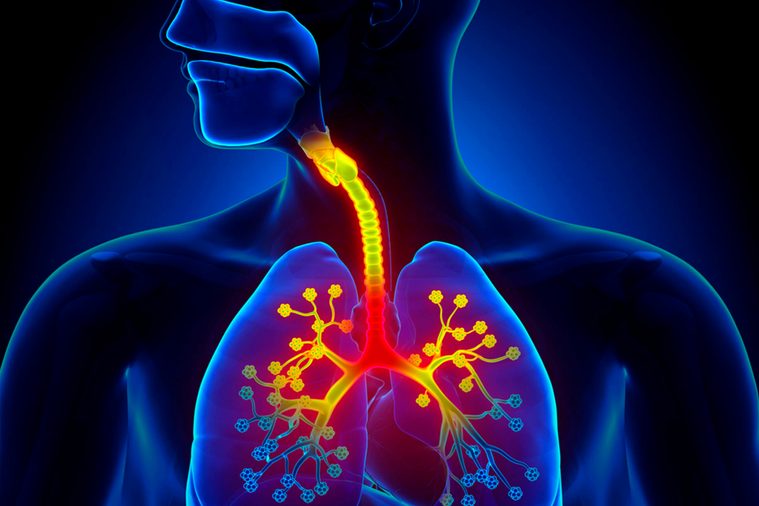90 Percent of People Don’t Know They Have This Disorder—Do You?
Updated: Aug. 30, 2018
A medical expert explains how you can get tested—and the dangers of putting it off.

Getting diagnosed with any disease is scary and stressful, even if you’re immediately put on medication and have a treatment plan in place. Just the thought that your body is not functioning properly elicits concern. What if there are complications? What if you’re part of the 2 percent of people who don’t get better?
But what if you don’t even know you’re sick? Some cancers would go undetected if not for screenings. Many victims of heart disease don’t realize the danger they’re in until they’re in an ambulance. But there’s one disease that is even sneakier.
Of the estimated 22 million Americans that suffer from sleep apnea, 90 percent have no idea they have it. In a survey conducted by SoClean, a company that makes products to sanitize CPAP equipment that treats sleep apnea, about a third of respondents said that no one else noticed they stopped breathing while they slept. Dr. Joseph Krainin, chief medical expert of SoClean and founder of online sleep center Singular Sleep, believes the reason so many live unaware of the condition is twofold: Many doctors are untrained in sleep medicine, and the public doesn’t realize how serious sleep disorders can be.
“There’s a lack of awareness in the general populous that chronic snoring or chronic poor sleep may be due to an underlying dangerous medical condition,” he says. “People think snoring is just an annoyance or a humorous body issue like body odor.”
But the dangers of not knowing go beyond breathing problems. As Reader’s Digest previously reported, people with severe, untreated sleep apnea are three times as likely to die than those without the disorder, and their risks of dying by cancer or cardiovascular disease significantly by four and five times, respectively. Other complications include abnormal cholesterol levels, type 2 diabetes, and irregular heart rhythms.
The survey, which polled more than 300 SoClean users who suffer from sleep apnea, revealed another concerning trend. Almost 50 percent of respondents suspected they had the sleep disorder, but didn’t treat it for years.
“There’s a huge component of denial where people are aware that they’re at risk, but they don’t want to do anything about it because that means ‘the mask’ or ‘the machine,’” Krainin says, referring to CPAP machines. “Oftentimes, these folks are otherwise healthy and the idea of being diagnosed with a medical problem is something they don’t want to confront.”
If you suspect that you are exhibiting silent signs of sleep apnea, the next step is a sleep study that determines whether you have the disorder. In the past, that was limited to spending a night in a lab with sensors attached to you while a camera recorded your every move. Now, a more comfortable option is home sleep testing from clinics like Singular Sleep. You use a kit sent to your home to monitor your sleep and then send it back to the lab for results.
As far as sleep apnea treatment, Krainin says CPAP machines have the “most robust set of medical science supporting (their) efficacy and effectiveness in treating the problem and preventing health consequences.” They have virtually no downside, as long as they stay clean. Using products like SoClean’s can reduce the risk of respiratory inflammation caused by a dirty machine. Those who do get diagnosed should talk to their doctor about the right treatment option for their needs.